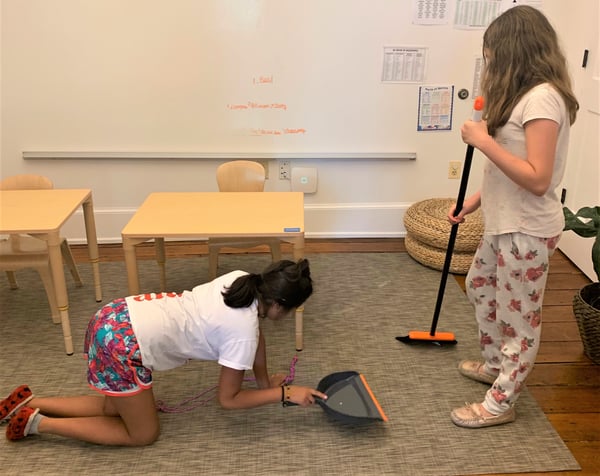One of our beliefs in the elementary studio is that the studio space is sacred. In a literal way, we uphold this belief through the process of studio maintenance, held each day from 3pm to 3:15pm. The learners are responsible for leaving the studio as tidy as they found it.
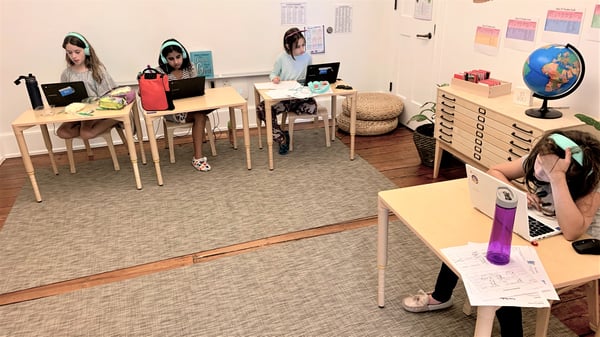
What is a question you’ve pondered that doesn’t have an easy answer or doesn’t have an answer at all? One elementary learner has wondered, “Where did it all start?” What existed before the Big Bang? Another learner has asked, “Is there any alien life? And if there is, why haven’t we found it?”
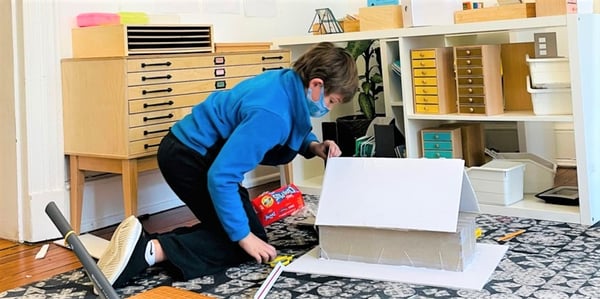
Every session, learners vote to choose which work by their peers will be showcased at the exhibition as an example of the hard work put in by each member of the studio during the session. This session, there was a lot of excitement about the Architecture Quest and Podcasts Writer’s Workshop, and there were more submissions for consideration than ever before!
Showing your work to your peers can be intimidating and requires bravery. The elementary learners are well-versed in giving and receiving feedback and approach these situations with confidence. For this exhibition, learners could submit any part of their work in the Architecture Quest—floor plan, elevation sketch, or final model—for voting. Every learner submitted at least one part of their work, and they all evaluated their fellow studiomates’ projects using this sheet as a guide.
Typically when the learners vote on Writer’s Workshop projects to highlight in the exhibition, they read each work in its entirety first. Because there were so many submissions this session, instead of listening to each submitted podcast all the way through, learners listened to two-minute samples instead. They then cast a blind vote, and the top three most-voted podcasts were played during the exhibition.
Systems for voting are a key part of the elementary studio environment. Learners take voting seriously and use it to uphold standards of excellence in the studio. The learners value fairness and hard work, and voting gives them the opportunity to honor fairness and recognize hard work at the end of each session.
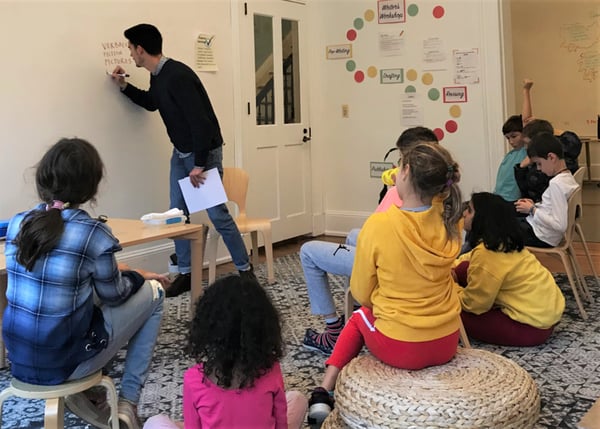
Elementary learners work through each session focused on “the dip.” The dip is a natural part of learning in nearly every activity. When you try something new, at first it can be exciting and you might experience initial success, which makes you feel happy about your progress. But as you continue, at a certain point it may get tough and the results may not come as quickly or as easily as they did at first, despite all the effort you might be putting in. This stage is called the dip.

Elementary learners use a special tool in the studio: the freedoms and responsibilities scale. At Acton, learners are given freedoms and responsibilities that are not typical of many learning environments. These range from doing studio maintenance to setting weekly goals to choosing which core skills area to work on. However, these freedoms and responsibilities aren’t simply granted, they must be earned and respected by learners.
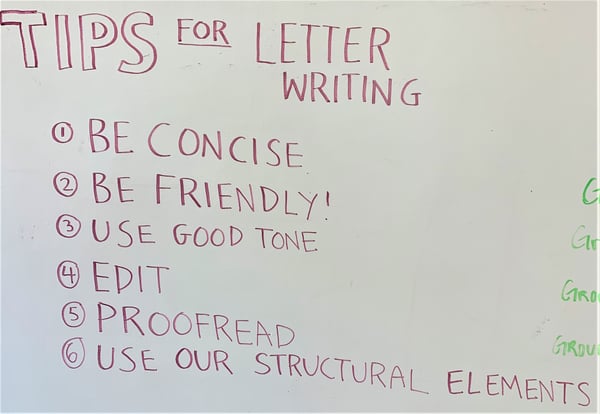
As part of our writer’s workshop, “Letter to a Hero,” the learners dove a little bit deeper into the elements of a letter and the best practices that will help them write polished letters to their heroes. We began with a broad question: what are the most important parts of a letter? The learners were put into two groups and had 20 minutes to research, explore, and create a list of the important parts of a letter for discussion. As a group, they came up with the following:

“You get out what you put in.”
It’s a straightforward sentiment, and one that is applicable to nearly any endeavor. This concept was brought up during CrossFit as a way to explain the benefits of pushing yourself. Coach Andrew said:
This is going to be a tough workout today, and you have options. You can give it your all and use proper form on every jumping jack and and sit up, or you can go on autopilot. It’s your choice, but, at the end of the day, will you want to look back and feel like there was something you could’ve worked harder at? Will you want to feel like you’re not allowing yourself to get as good as you can possibly be?
At close that day, the idea of getting out what you put into something was raised again. The guides asked the learners what that meant to them. One learner responded, “It means the benefits at the end are equal to how much effort you put in.” A lot of heads nodded in agreement.
The discussion then shifted to talking about times at Acton that the learners have seen this principle at work. One learner responded that Khan math requires a lot of time to understand the concepts, but that the more time put in, the easier it is to build on the material and make progress faster. Another said that writer’s workshop and the writing process is an example of getting out what you put in: “If you don’t follow all of the steps properly in brainstorming, drafting and editing, your work won’t be as good as it could be.”
At Acton, learners regularly face challenges that require time, effort, and focus. There might be areas of core skills they prefer over others, and there might be particular writing genres they find easier to devote energy to. They might dislike certain games and be excited to play others for hours on end. The key is understanding that they have the capacity to put their full effort into anything they choose.
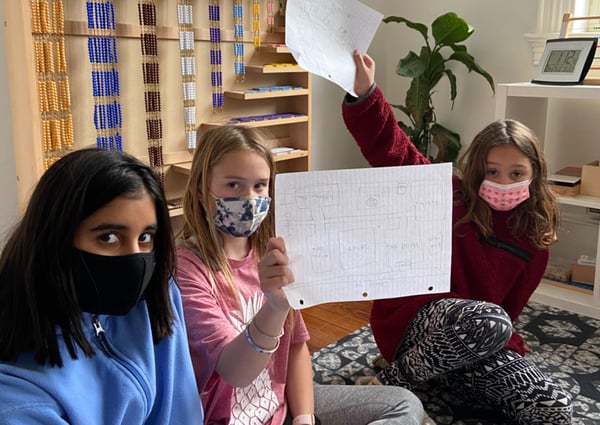
Going to school in the nation’s capital can be exciting! Learners are naturally curious about what they observe on their way to school, in our outdoor space, and on our excursions. They are particularly inquisitive when it comes to low-flying helicopters. Is that the President? Where is it going and where is it coming from? Guides, do you have the answers?
Guides try not to answer questions as part of our role in the studio. Questions like these, though, we are often unable to answer!
The beginning of a new semester encourages learners to cultivate this curious mindset and apply it to their learning. What are we learning in quest and writer’s workshop? What will our studio look like in six weeks at our next exhibition? What’s next for me in core skills?
Not only does this mindset help with goal setting and maintaining excellence in our studio, but it pushes learners to seek answers to their questions. In the architecture quest this session, learners will investigate the structure of our school building and then design their own dream studio. If they choose, learners can also submit a design to be considered for the new Acton middle school studio.
Learners will also apply their curiosity to this session’s writer’s workshop, podcasts. In their podcasts, learners can tell a fictional story, host an imaginary interview with an expert, or present research on a topic of interest to them. Many learners are already using this writer’s workshop as an opportunity to seek answers to their many questions.
What’s the history of the alphabet? How can you sneak candy into the movies? What is the meaning behind this song? All these are questions that learners will seek to answer in a podcast format this session!
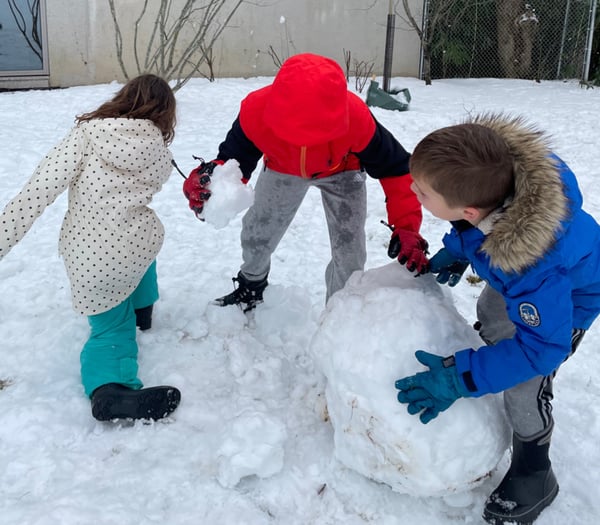
Are you a giver or a taker? Are you an explorer, a puzzler, or a data collector? How did people who lived in ancient civilizations, like Sparta and Athens, build their identities? These are all questions learners addressed this week during launch, quest, and civilizations respectively.
Our conversations challenged learners to consider whether they construct their identity based on their values, their actions, or their thoughts and feelings. Learners said they identify themselves and others based on actions. If you want to be considered kind, treat people with kindness; if you want to be a mathematician, master your math skills; if you want to be an athlete, play sports.

One of the unique features of Acton’s learning environment is self-governance. Guides don’t fix all the problems that arise in the studio. Guides often step back and wait for learners to raise the issue. Leaders emerge to do something about it. Then, guides will offer frameworks, tools, and choices. In this way, guides push governance of the studio back to the learners to solve problems themselves.
